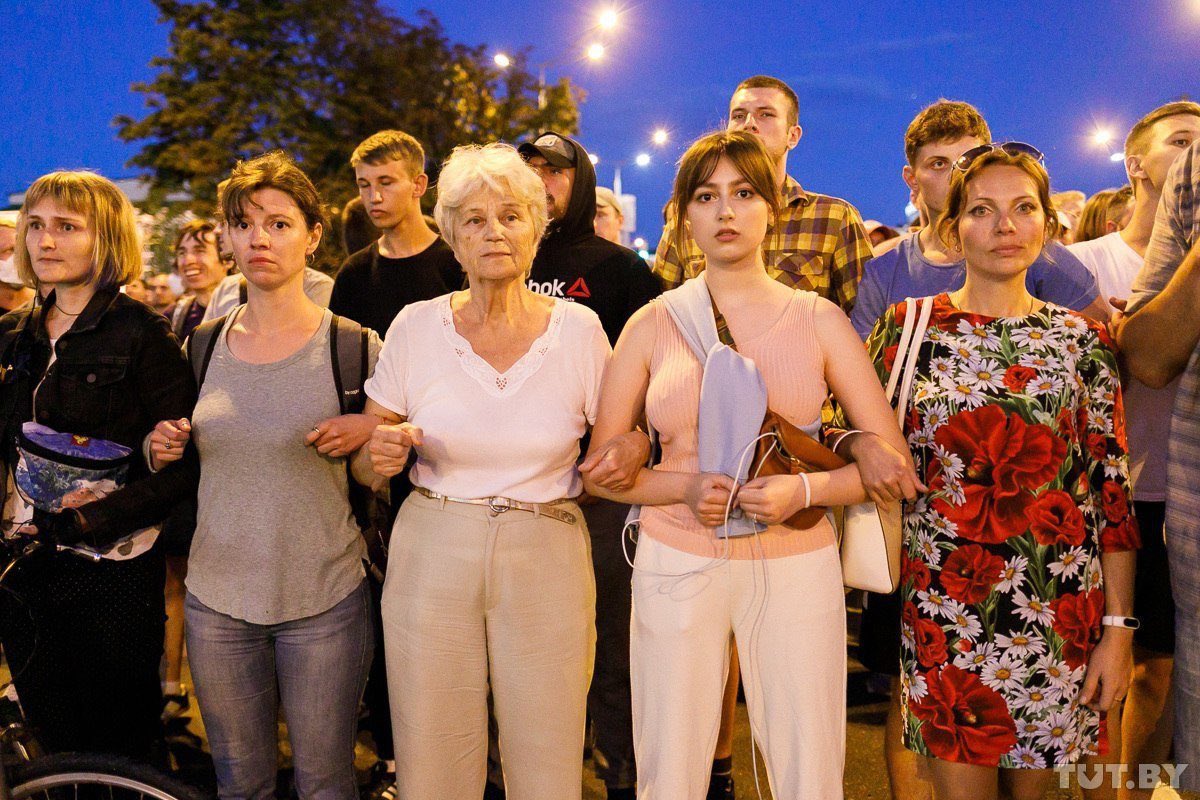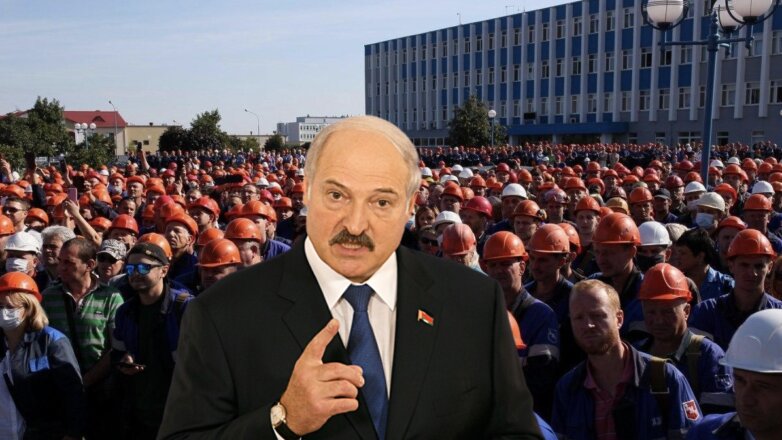Lukashenka was greeted with a victory by the leaders of China, Russia, Kazakhstan, Azerbaijan, Uzbekistan, and Tajikistan.
Leaders of more democratic countries were not as enthusiastic.
UN Secretary-General Antonio Gutteres called on the Belarusian authorities to show maximum restraint and to ensure full respect for the rights of freedom of expression, peaceful assembly, and association, at the same time calling upon all actors
"to avoid actions that would further enflame tensions and to approach the issues in the spirit of dialogue."
European Commission President Ursula von der Leyen urged Minsk "to ensure that the votes in yesterday's election are counted and published accurately and assured the EU is following the events "closely":
Harassment & violent repression of peaceful protesters has no place in Europe.
Fundamental rights in #Belarus must be respected.
I call on the Belarusian authorities to ensure that the votes in yesterday’s election are counted & published accurately.
— Ursula von der Leyen (@vonderleyen) August 10, 2020
I spoke with @MorawieckiM about the situation in #Belarus. We are following the developments closely.
The EU will be vigilant and ready to support the process of de-escalation and dialogue that would lead to democratisation and a closer, more intense EU-Belarus Partnership.
— Ursula von der Leyen (@vonderleyen) August 10, 2020
EU Council President Charles Michel condemned police violence that followed the election:
Violence against protesters is not the answer #Belarus
Freedom of speech, freedom of assembly, basic human rights must be upheld.
— Charles Michel (@eucopresident) August 10, 2020
Poland on Monday (10 August) called for an emergency European Union summit on the situation in Belarus.
“The authorities have used force against their citizens, who are demanding change in the country. We must support the Belarusian people in their quest for freedom,” Polish Prime Minister Mateusz Morawiecki said in a statement.
This proposal was supported by the president of Lithuania Gitanas Nauseda, who said in a statement that
“At this stage, people of Belarus who want change in their country need the support of the international community and the European Union... The aspirations of the citizens of Belarus deserve adequate attention from the EU and Western countries," he added, saying that the presidential election in Belarus "cannot be considered democratic and transparent" and calling on Belarus' authorities to release protesters:
"Citizens’ rights, freedom of speech and expression were not respected in these elections. I urge the Belorussian authorities to release all peaceful protesters, journalists as well as representatives of the civil society detained during the elections and, together with the Polish leaders, I call upon the heads of the EU institutions to respond to the situation in Belarus at the highest level," he said.
The newly-created Lublin Triangle consisting of Ukraine, Poland, and Lithuania issued a joint statement:
https://twitter.com/DmytroKuleba/status/1292885540648493056
Ukrainian President Volodymyr Zelenskyy issued a restrained statement of support:
"We call on our neighbors to be as tolerant as possible, and reject street violence. We call for the most open, albeit complex, dialog, because only a broad dialog will allow the citizens of the Republic of Belarus to find a way out of the difficult crisis situation and honestly discuss further steps and formats of public interaction. Only mutual understanding between all parties can preserve the country's independence and ensure its further movement towards freedom and democracy," he said in a statement.
German officials voiced "strong doubts - and from our point of view justified doubts - about the conduct of the elections in Belarus," government spokesman Steffen Seibert told a press conference on Monday. And Germany's Foreign Minister Heiko Maas stated that the EU should reconsider its decision to lift previously-imposed sanctions against Belarus "in the light of the past weeks and days."
Latvian Prime Minister Krisjanis Karins tweeted a statement of support for the opposition:
https://twitter.com/krisjaniskarins/status/1292755094317010944
Czech Foreign Minister Tomas Petricek shared a statement of the Czech diplomacy condemning the use of force against protesters and stating that the vote was not free or democratic.
I do not consider the presidential election in #Belarus to be either free or democratic. The whole statement of the Czech diplomacy… pic.twitter.com/sigNYeuayG
— Tomáš Petříček (@TPetricek) August 10, 2020
And Czech Prime Minister Andrej Babis tweeted:
"I condemn the police violence and brutal police crackdown on peaceful demonstrators in Minsk. It is a process that by no means belongs to today's Europe. Belarusians have the right to freedom of speech and democracy."
Swedish Minister for Foreign Affairs Ann Linde released a statement condemning the violence and putting the blame for it on Lukashenka:
"The police have used violence against demonstrators in a disproportionate and unacceptable manner. Demonstrators and journalists have been detained. There are reports that a number of people have been injured, and there are also reports of deaths. The responsibility for these violent developments lies with President Lukashenka and the Belarusian Government...
Sweden will continue to support the Belarusian people’s legitimate demands for democracy and respect for human rights.
We now demand that the authorities immediately release everyone who was arrested in connection with the elections and that politically motivated charges are dropped. We expect President Lukashenka to respect democratic principles and listen to the people’s demands for change."
US Secretary of State Michael Pompeo released a statement condemning the use of force and in support of the aspirations of Belarusians for a democratic future:
"We urge the Belarusian government to respect the rights of all Belarusians to participate in peaceful assembly, refrain from use of force, and release those wrongfully detained. We strongly condemn ongoing violence against protesters and the detention of opposition supporters, as well as the use of internet shutdowns to hinder the ability of the Belarusian people to share information about the election and the demonstrations.
As friends of Belarus, we support Belarusian independence and sovereignty, as well as the aspirations of the Belarusian people for a democratic, prosperous future. To achieve these goals, the Government of Belarus must prove through action its commitment to democratic processes and respect for human rights."
Read more:
- Why we will cover the protests in Belarus – Editorial
- Statement on Belarus by Ministers of Foreign Affairs of Lithuania, Poland and Ukraine
- 3,000 detained as Belarus protests second day in a row against rigged elections, national strike announced
- Vitaly Portnikov: Belarusians must now make the ultimate choice
- What you need to know about the unprecedented Belarus presidential election, in a nutshell





